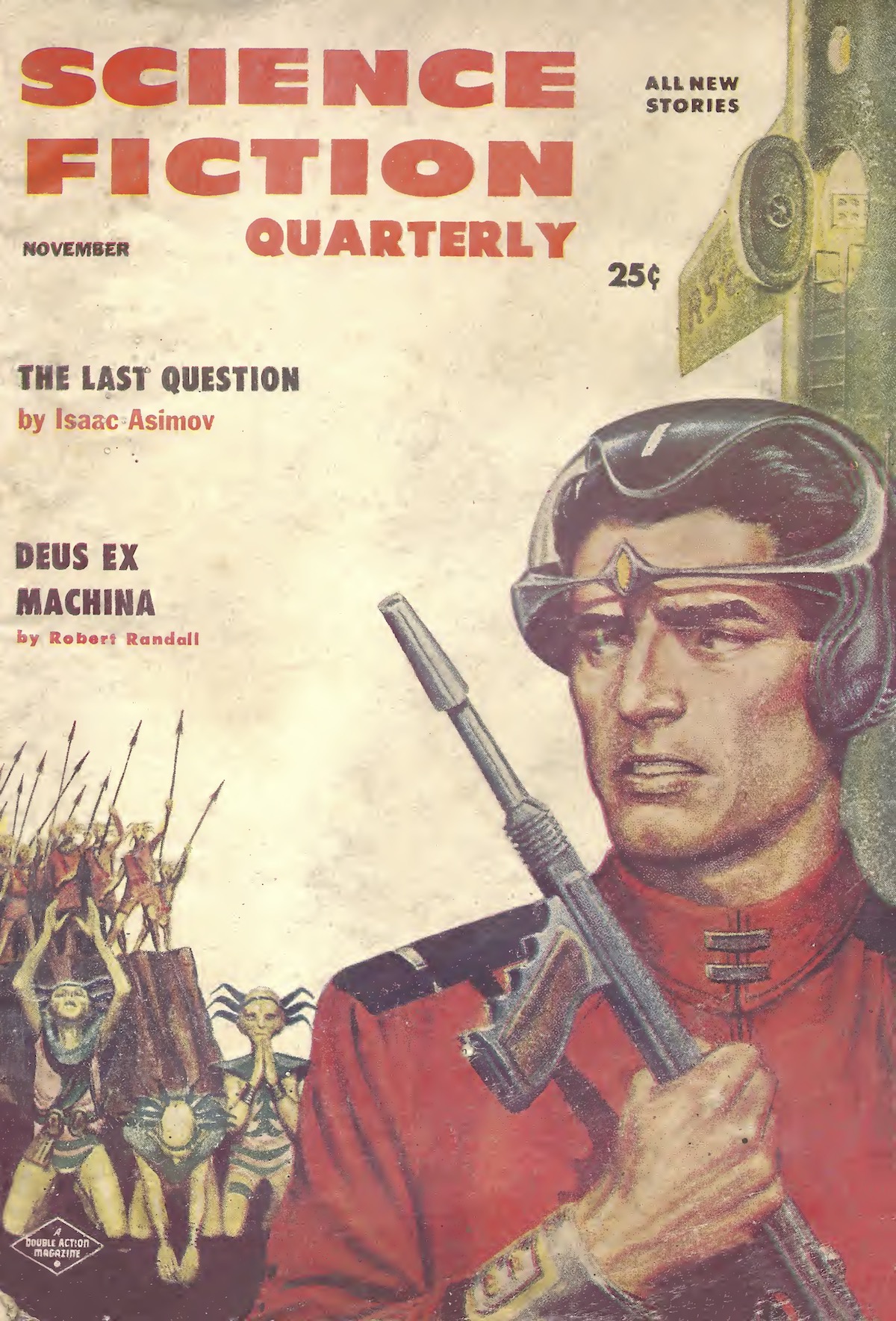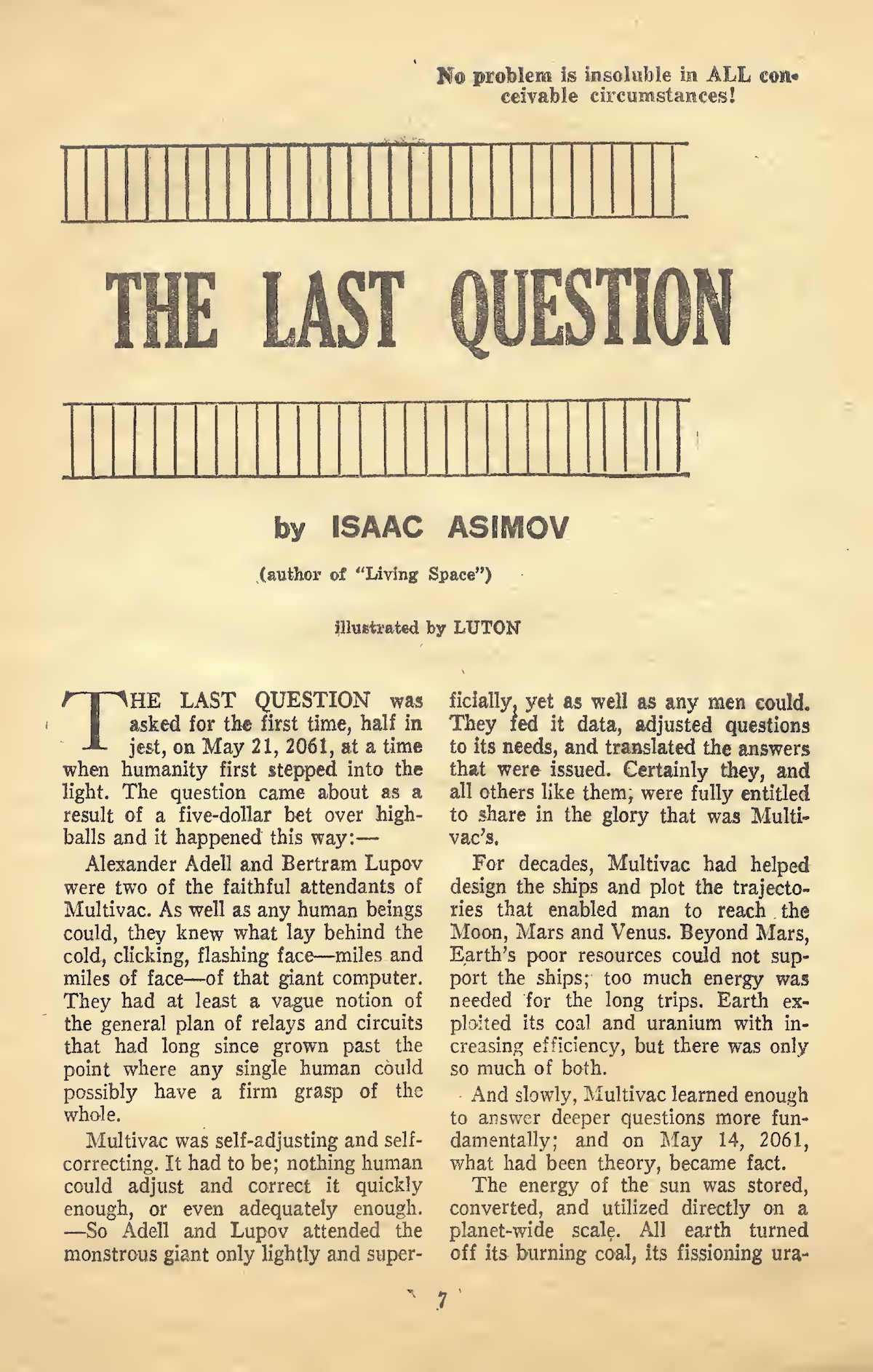Isaac Asimov (January 2, 1920 – April 6, 1992) liked one of his stories above all others – more than the 500 or so stories he wrote or edited, including the bestselling I, Robot, the Foundation series and Lecherous Limericks. The story is The Last Question. First published in the November 1956 issue of Science Fiction Quarterly, the short story tells of the ability of humankind to cope with and potentially reverse the process of entropy.

In 1975, Asminov wrote of The Last Question:
Why is it my favorite?
For one thing I got the idea all at once and didn’t have to fiddle with it; and I wrote it in white-heat and scarcely had to change a word. This sort of thing endears any story to any writer.
Then, too, it has had the strangest effect on my readers. Frequently someone writes to ask me if I can give them the name of a story, which they think I may have written, and tell them where to find it. They don’t remember the title but when they describe the story it is invariably ‘The Last Question’. This has reached the point where I recently received a long-distance phone call from a desperate man who began, “Dr. Asimov, there’s a story I think you wrote, whose title I can’t remember—” at which point I interrupted to tell him it was ‘The Last Question’ and when I described the plot it proved to be indeed the story he was after. I left him convinced I could read minds at a distance of a thousand miles.

The story embraces ideas of God and creation, the scientific and the spiritual. Asimov explained his outlook on life:
Have I told you that I prefer “rationalism” to “atheism”? The word “atheist,” meaning “no God,” is negative and defeatist. It says what you don’t believe and puts you in an eternal position of defense. “Rationalism” on the other hand states what you DO believe; that, that which can be understood in the light of reason. The question of God and other mystical objects-of-faith are outside reason and therefore play no part in rationalism and you don’t have to waste your time in either attacking or defending that which you rule out of your philosophy altogether.
In the video below, Leonard Nimoy (March 26, 1931 – February 27, 2015) reads The Last Question aloud for an adaptation held at Michigan State University’s Abrams Planetarium in 1966. It was this production that first made Asimov think of The Last Question as his best short story.
And Nimoy is the ideal reader, bet kn own for playing Spock on Star Trek, is the ideal person to read it. A 1967 Time magazine profile says Asimov passed his time “batting out books on a new electric typewriter, emerging only occasionally to watch Star Trek (his favorite TV show)” – he went on to become an advisor to the show.
Would you like to support Flashbak?
Please consider making a donation to our site. We don't want to rely on ads to bring you the best of visual culture. You can also support us by signing up to our Mailing List. And you can also follow us on Facebook, Instagram and Twitter. For great art and culture delivered to your door, visit our shop.









